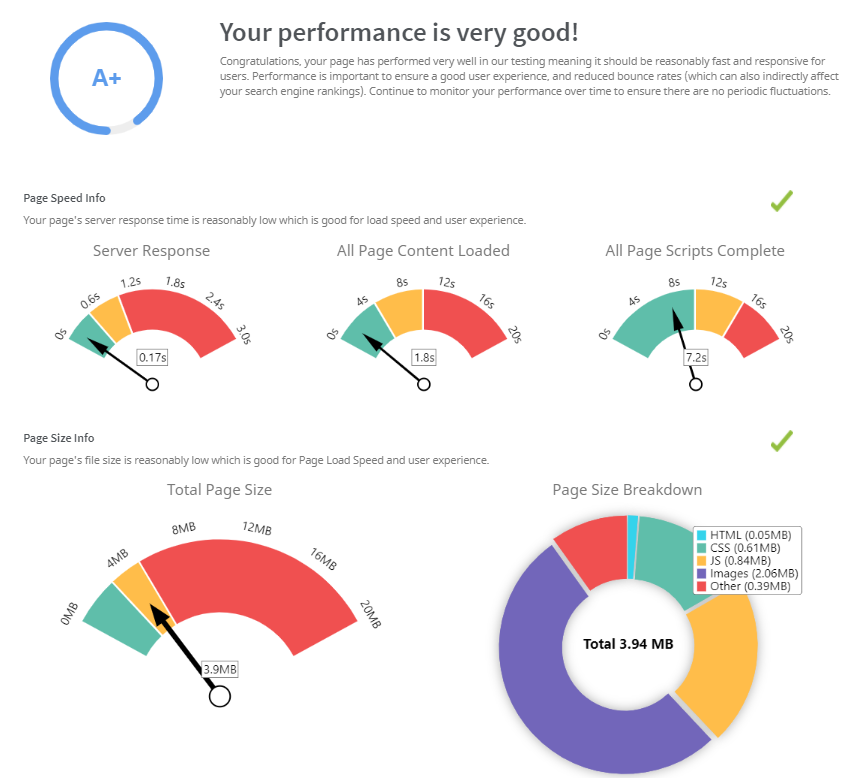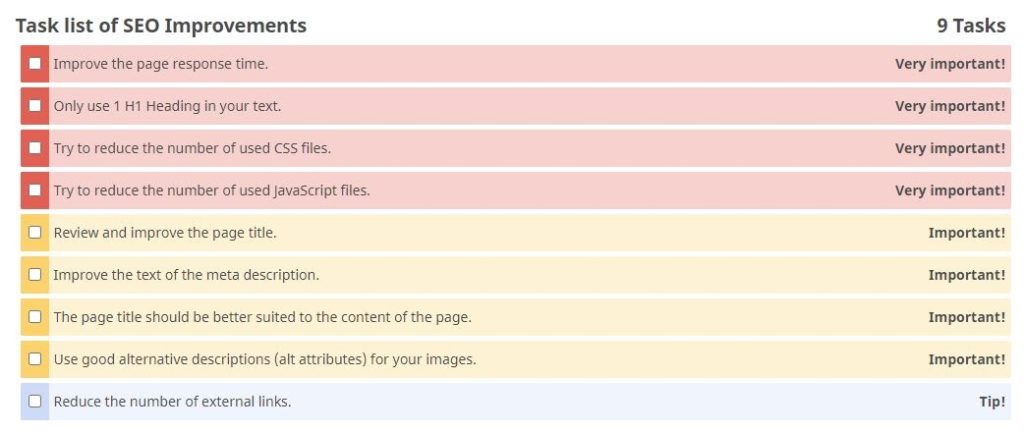Search engine optimization (SEO) is crucial to any successful website. Google processes over 3.5 billion searches per day. That’s a lot of potential website traffic! Without an effective SEO strategy, your website will struggle to compete for visibility in all those search results.
The misconception that SEO is a “set-it-and-forget-it” endeavour leads people to wonder why SEO audits are important.
In this post, we’ll answer 5 key questions:
- What is an SEO audit?
- What’s included in an SEO audit?
- Why are SEO audits important?
- How often should you do an SEO audit?
- Can you do an SEO audit yourself?
What is an SEO audit?
An SEO audit is simply a complete website check-up. It identifies your site’s strengths and weaknesses from a technical standpoint, user perspective, and other elements. This assessment helps you optimize your website for search engine visibility, functionality, user experience, and conversion.
Think of an SEO audit like a vehicle inspection. When you take your car in for regular service appointments, the mechanic uses a checklist to go over many components. They inspect all your vehicle systems for optimal performance and present you with a report showing what needs to be fixed.
Similarly, a comprehensive SEO audit inspects many components of your website to find any issues that might hinder your site’s performance in search results. It also includes a recommended improvement plan with specific action steps to improve your site’s SEO.
Often, an SEO auditor uses a detailed checklist, just like the mechanic inspecting your vehicle. The checklist shows everything inspected and how your website scores or performs for each item on the checklist.
What’s included in an SEO audit?
A typical SEO audit assesses 3 major aspects of your site to give you a clear picture of what’s working and what needs improvement:
- Technical SEO
- On-Page SEO
- Off-page SEO
Part of this review process includes comparing your site’s performance to your competitors.
Technical SEO
The technical SEO part of an SEO audit analyzes your website’s health and performance from a technical perspective.
Search engines “crawl” through your website to browse its content and follow links. They index webpages much like a reference book indexes its contents. Technical issues can hinder search engines from crawling or indexing your site efficiently or even at all.
Specific issues a technical SEO audit looks for include:
- Site speed
- Mobile optimization
- XML sitemap
- HTML sitemap
- Redirect chains
- 404 errors
- Broken links
- HTML tags
- Image alt attributes
- Canonical tags
- Schema markup
- Cannibalization
- URL structure
- File sizes
Your website’s technical aspect is also a major factor in user experience, such as site speed (how quickly pages and images load) and mobile-friendliness (i.e. does your site work and look good on mobile devices?).

On-page SEO
The on-page SEO part of an SEO audit looks at the elements your website users actually see – the copy, images, headings (meta tags), and format. It also includes information about keywords, such as
- Keywords your site are ranking for in search results
- Images
- Videos
- Internal links
- Page headers
Ideally, your on-page content should be useful, well-organized, visually appealing, and formatted correctly. This will improve both the user experience and your SEO.
Off-page SEO
The off-page SEO part of an SEO audit reviews activities in places around the internet besides your own website.
Backlinks are the primary component of off-page SEO. These are links to your website from other websites. The authority of external websites that link to yours affects the value of your backlinks. An SEO audit will review all backlinks for effectiveness.
SEO Audit Report
Upon completion of the SEO audit, you’ll receive a report. An SEO audit report is an indispensable tool for optimizing your online strategy. The report shows you how your website performs and gives you specific issues you can fix or improve to better your search engine optimization.
If you hire an SEO professional to do your audit, they can make those improvements for you. After implementing the recommended fixes, you’ll receive an updated report showing the impact of those changes.
Why are SEO audits important?
Your website is there for a purpose. Ultimately, the intention is for your website to attract new leads who become new customers. Even if you have a website that’s not designed for sales (such as a purely educational space), what’s the point in having a site if no one ever visits it?
An effective SEO strategy drives more traffic to your website. But search engine algorithms and webmaster rules are constantly changing – even daily. Without regular SEO audits, your website won’t keep up with the current SEO guidelines, and it’ll lose visibility.
Regular SEO audits to ensure your website is always the best it can be, even though the online world is constantly changing.
Here are 5 key benefits of an SEO audit.
1. Identify technical issues
If SEO is like building a house, a technical SEO audit is like building a solid foundation. If there are cracks or weaknesses in your foundation, no matter how beautifully you build on top of it, that house is sure to crumble.
A technical SEO audit will determine things like:
- How long does it take your website to load?
- Can your site speed be improved? If so, how?
- Are there redirects or 404 errors on your site?
- Is your site navigation easy to follow for both users and search engines?
- How easily can search engines crawl your site?

2. Improve search visibility
Because search engine algorithms and webmaster guidelines are constantly evolving to provide a better user experience, an SEO audit will identify your site’s elements that can be optimized to improve search visibility.
An SEO audit will assess things like:
- What keywords is your site ranking for?
- How can your site rank better for specific keywords?
- Does your site have effective headers?
- Does your site have optimal meta titles?
- Does your site have optimal meta descriptions?
- How many backlinks does your site have?
- Are the quality of your backlink, or are they spammy?
3. Better user experience
User experience is crucial to search engine optimization. Search engines can recognize if users don’t stay on your site because your site is glitchy, outdated, irrelevant, or loads slowly.
An SEO audit can identify things like:
- Is your website mobile-friendly? If not, what can be done to change that?
- Can your site speed be improved?
- Is your content outdated?
- Does your website have errors?
4. Monitor your competition
You’re competing for the top search result for your target keywords. An SEO audit will look at those competitors to identify specific strategies you can use to outrank them.
Some of the things an SEO audit can determine include:
- What keywords are your competitors ranking for?
- Are there keywords your competitors rank for that you need to target?
- How many backlinks does your competition have?
- Does your competition have better quality backlinks?
- What aspects of your website can you improve to outperform your competitors?
5. Increase sales & leads
When you use the information in your SEO audit report to strategically improve your website and optimize your online content, you get better results.
An initial SEO audit provides you with benchmarks. AFTER THAT, every SEO audit adds to your track record and shows the progress your SEO strategy has made. These metrics reveal what’s working and where you need to adjust your methods for improving conversions.
Common measurements involved in an SEO audit include:
- Search volume – How much of your traffic comes from search?
- URL clicks – How many clicks do your search results get?
- Impressions – How many impressions do your search results get?
- Bounce rate – How long do visitors stay on your site?
- Target audience – Who visits your site? Where do they live? What device do they use?
An SEO audit is important if you want to maintain a successful website. The information you get from an SEO audit helps you focus your marketing efforts in the most effective areas.
How Often Should You Do an SEO Audit?
A successful SEO strategy does not employ the “set-it-and-forget-it” method. Similarly, an SEO audit should not be a “one-and-done” thing. Because search engine algorithms and webmaster guidelines continually evolve, regular SEO audits are necessary.
There is no “one-size-fits-all” SEO audit schedule. Each website has different needs based on various factors like:
- how active your site is
- how frequently you add new content
- whether or not your site has a store
- how much content is on your site, etc.?
That said, most SEO experts recommend a quarterly SEO audit schedule. Some add mini-audits monthly.
3 Signs You Need an SEO Audit
Beyond your regular SEO audit schedule, here are some signs that your website needs an audit.
1. A decrease in search rankings, visitor traffic, or conversions
If you notice a sudden plummet in search rankings, visitor traffic, or conversions, it’s time for an SEO audit. This could be a sign of technical issues or off-page elements that need fixing.
2. You’re changing your website host or functionality
If you’re planning to change your website host or make a major change to your website’s functionality, perform an SEO audit both before and after the change.
3. Slow page load speed
If it seems your website loads slower than it used to, it’s time for another SEO audit. You need to identify what’s causing the lag. Online visitors are an impatient bunch. Even 1 second of delay can cause lost visitors, which means lost conversions.

Regular SEO audits ensure that your content strategy and your marketing investments pay off. Consistency is key. If you schedule regular SEO audits and do the work after each one to make necessary improvements, your website will continually gain strength in the search engine results.
Can You Do an SEO Audit Yourself?
It’s possible to do a general SEO audit on your own website yourself. There are free and paid online tools that quickly assess a few basic SEO elements, and there’s nothing wrong with using these.
However, if you have a limited understanding of the nuances of SEO, current SEO algorithms and webmaster guidelines, and technical knowledge, hiring an SEO expert is highly recommended.
SEO is time-consuming. Even if you have some SEO knowledge, it might be a better use of your time to hire an SEO expert to work on what they do best, so you can spend your valuable time working on what you do best.
If you do PPC marketing, it’s a good idea to do a PPC audit together with an SEO audit. SEO and PPC work together, so an audit of both marketing strategies can actually improve your ROI on both. Again, this is a big task, so hiring an expert who can do the hard part and summarize the results would save you a lot of time.
What to Expect from a Code Web SEO Audit
CodeWeb provides trusted SEO and PPC services. We offer comprehensive SEO audits to ensure your content strategy produces top-notch results.
When you hire CodeWeb to perform an SEO audit of your website, here’s what you can expect:
- A thorough review of your technical SEO, on-page SEO, and off-page SEO as described above
- Additional local SEO, which aims to increase your brand’s online visibility to consumers in your geographic area
- A detailed report of the SEO audit results
- Recommendations for next steps
After our audit and a consultation with you, we can take the steps necessary to correct technical issues and fix any errors or weak spots in your on-page or off-page SEO.
Our team includes website designers and developers, content creators, and SEO specialists, so we’ve got all the bases covered.
If you need…
- a website
- a new website design
- a one-time SEO audit
- regular SEO auditing and website maintenance
- A complete SEO strategy
- A content strategy
- Website management services
- PPC management and PPC auditing
…we have the solution you need. Code Web is a full-service Calgary SEO company that can help you create and maintain a website that generates results. Contact us today to find out how we can help you optimize your website for better results.




